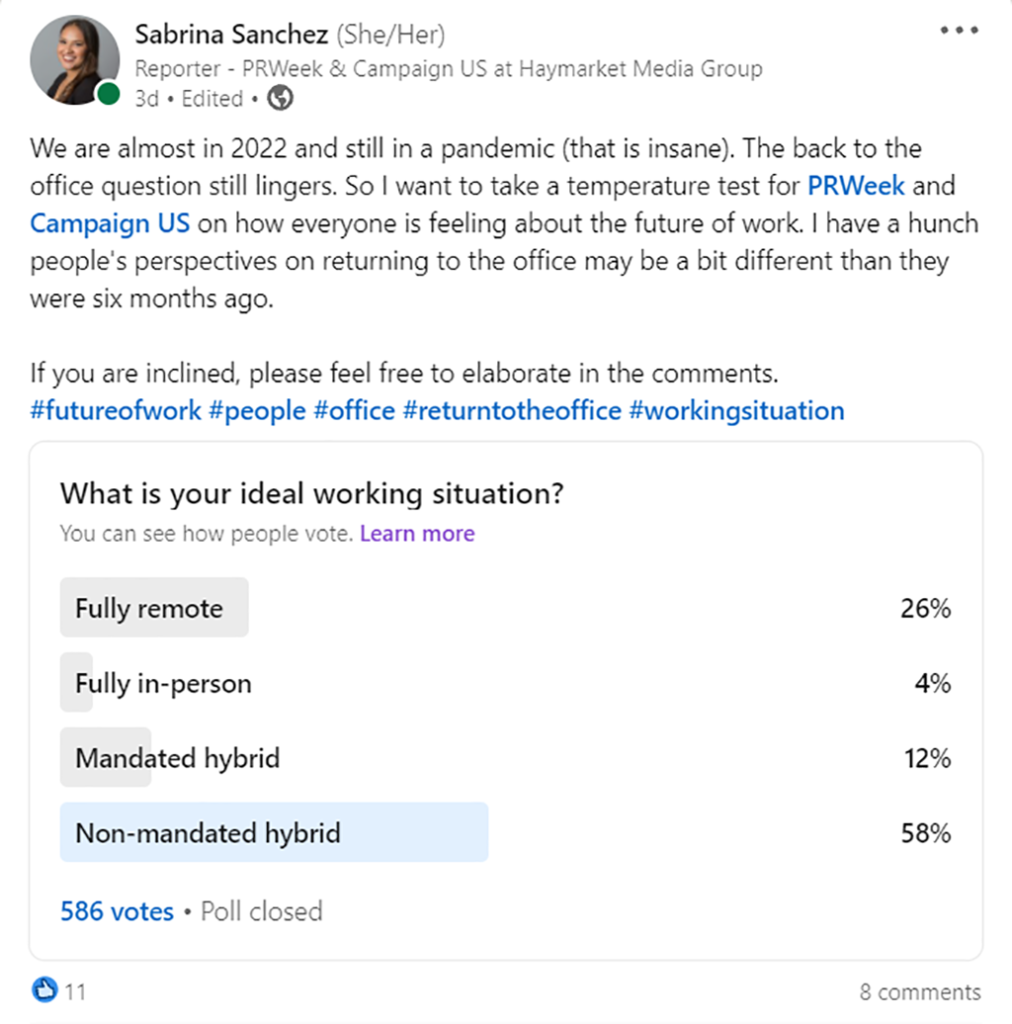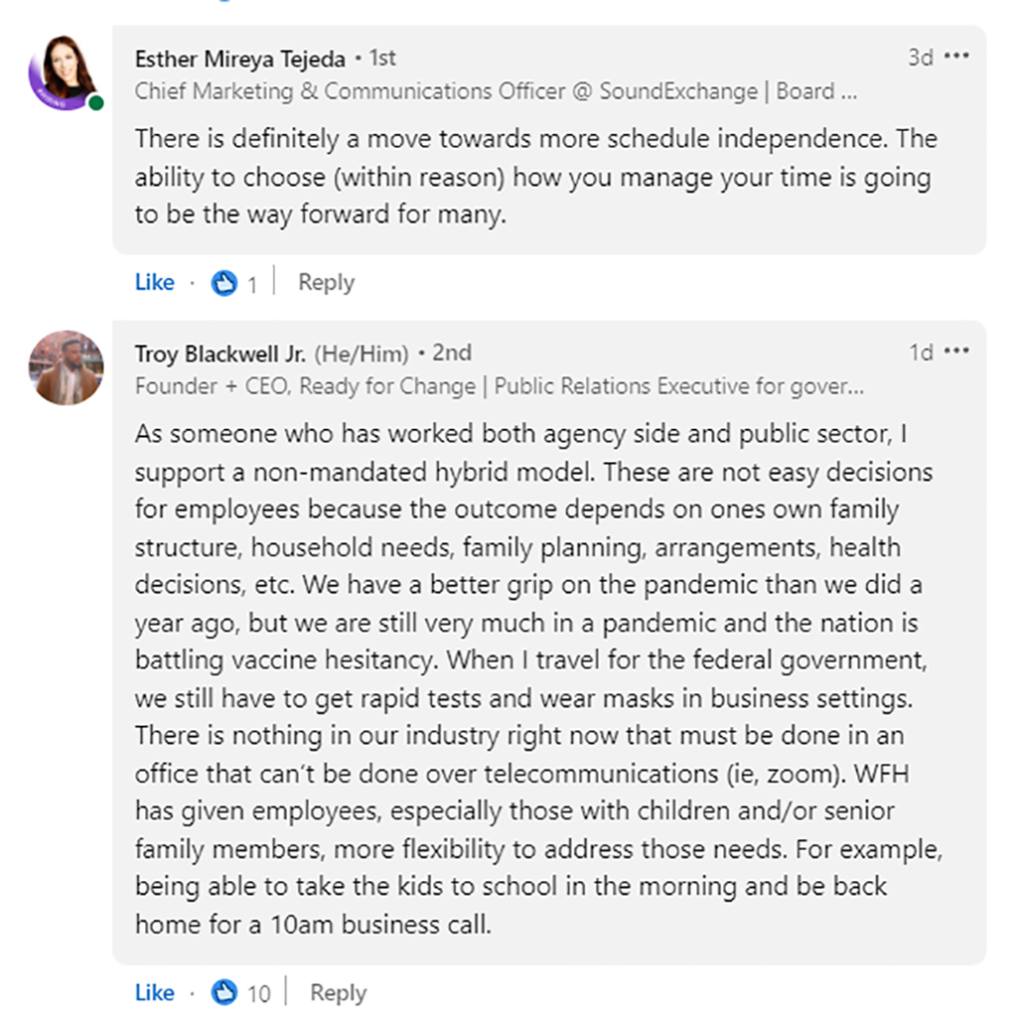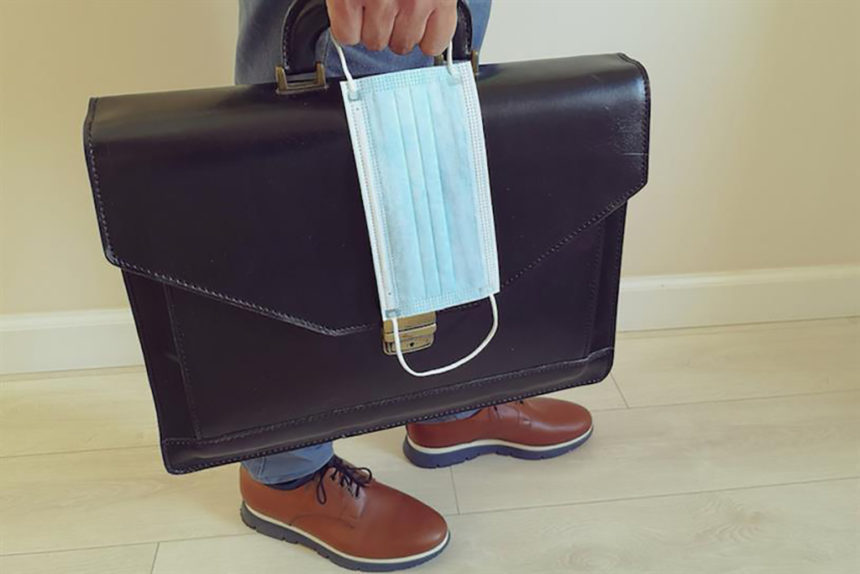Employees want to work in whatever location they see fit, according to the latest PRWeek and Campaign US poll.
Nearly 600 people responded to the poll which ran for three days on LinkedIn. A similar poll ran on the Campaign US Twitter account with 16 respondents. The consensus is clear: people do not want to be mandated to return to the office.
According to the results, of 586 respondents on LinkedIn, 58% said they see a “non-mandated hybrid” work model as their ideal working situation, meaning they want to have access to the office, but they don’t want to be forced to come in.
The second highest preferred work style was “fully remote,” with 26% choosing it as their ideal method.
Only 4% said they prefer fully in-person and 12% selected mandated hybrid, suggesting mandated days in the office combined with work from home days.

On Twitter, the results were similar: 43.8% preferred non-mandated hybrid and 37.5% selected fully remote, with the lowest preferred options being fully in-person (6.3%) and mandated hybrid (12.5%).
The results are a challenge to companies evaluating the best working situation for their employees. Some companies, such as Havas, have already issued policies requiring employees to come into the office, at least part-time.
But are employees happy with having to be in-person? Amid a talent shortage and heavy competition for existing talent, the results imply the need for a re-evaluation of the modern workplace.
Troy Blackwell, founder and CEO of Ready for Change and PRWeek’s 2020 recipient of the Most Purposeful Person award, commented that a non-mandated hybrid model is the better option to accommodate people’s changing circumstances.
Esther Mireya Tejeda, chief marketing and communications officer at SoundExchange, echoed the sentiment, saying schedule independence “is going to be the way forward for many.”

Emilio Yanez, social media coordinator at PlateNextDoor, said a non-mandated hybrid work model simply offers employees a choice they did not previously have, which is refreshing.

Still, challenges remain for the companies that have entered into long-term lease agreements or feel the office is needed for proper collaboration.
Some agencies have already given up the office space. Indie agency Episode Four, for instance, will have employees meet up in a new city once a month for in-person collaboration.
This story first appeared on PRWeek US.







